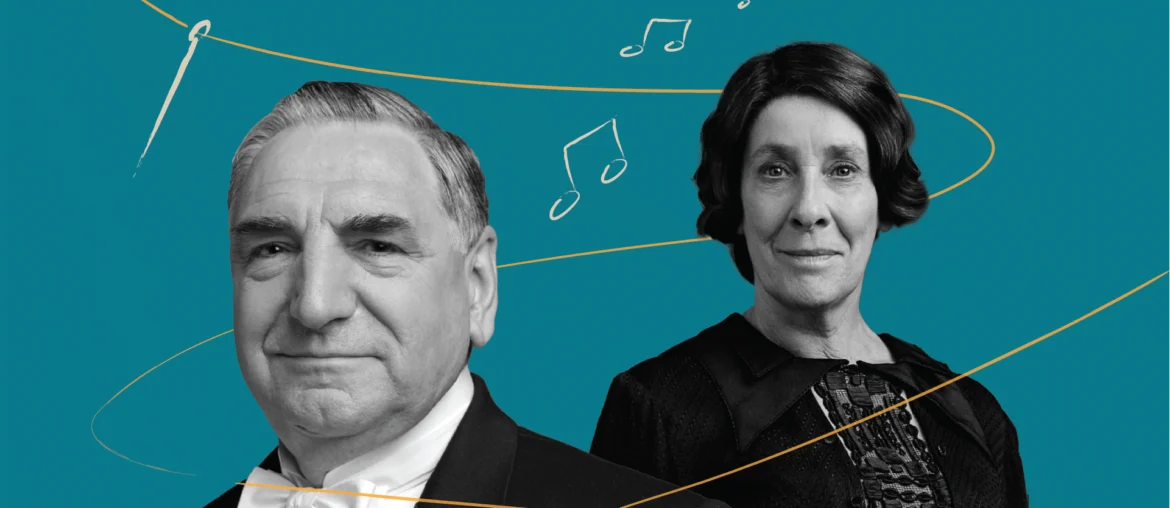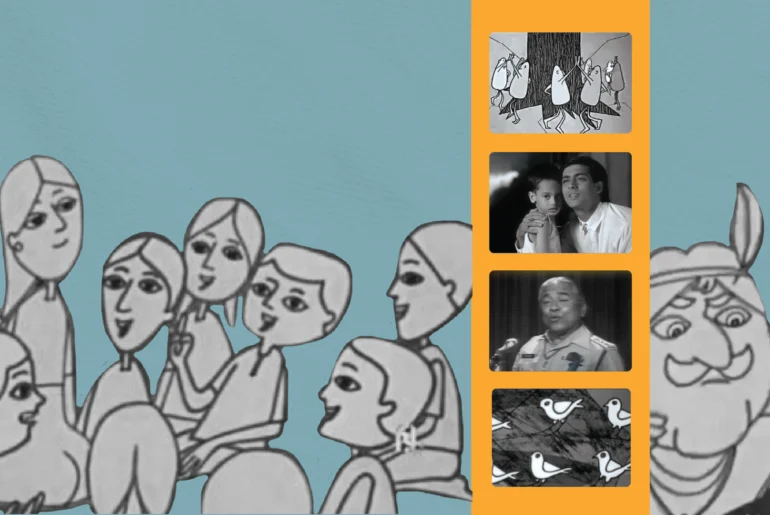Downton Abbey’s Mr. Carson and Mrs. Hughes redefine midlife love. Discover how their quiet courage, subtle gestures, and weathered wisdom create a profound, enduring connection, teaching us that the deepest love isn’t always the loudest.
There’s a moment in Downton Abbey’s Season 3, episode 2 that perfectly captures the essence of midlife love. Mr. Carson, the eternally proper butler, is worried about the possibility of Mrs. Hughes having cancer. When Mrs. Hughes receives the all-clear, Carson is so relieved that he’s caught singing “dashing away with a smoothing iron she stole my heart away.” Mrs. Hughes overhears him and it makes her smile – it’s such a tender moment because it reveals how deeply he cares for her, even when he thinks no one is listening.
Watching the relationship between Carson and Mrs. Hughes unfold over the series is like witnessing a masterclass in mature love. Their courtship bears no resemblance to the passionate, consuming romances of youth. Instead, they build it on something far more enduring: a deep recognition of each other’s worth, shaped by years of shared experiences, mutual respect, and the quiet confidence that comes with knowing oneself.
The beauty of unhurried hearts
Young love burns with urgency. It demands declarations, grand gestures, and immediate answers to life’s biggest questions. But Carson and Mrs. Hughes teach us that midlife love operates on an entirely different timeline—one measured not in heartbeats but in the steady rhythm of daily kindness.
Their love story unfolds in stolen glances across the servants’ hall, in the way Carson’s voice softens when he speaks her name, and in Mrs. Hughes’ rare smile that appears only for him. There’s no rush to define what they are to each other because they already know. They’ve spent years observing each other’s character in countless small moments: how Carson handles crisis with dignity, how Mrs. Hughes shows compassion to the younger staff, how both of them choose integrity even when no one is watching.
This unhurried quality isn’t born of indifference; it’s born of wisdom. By midlife, we’ve learned that the most meaningful connections aren’t always the most dramatic ones. We understand that love isn’t just about finding someone to complete us, but about finding someone who appreciates the completeness we’ve already cultivated within ourselves.
The language of subtle gestures
In youth, love often speaks in superlatives: the grandest bouquet, the most expensive dinner, the loudest proclamation. But Carson and Mrs. Hughes communicate in a more sophisticated language, one of subtle gestures that reveal a deeper understanding of what truly matters.
When Mrs. Hughes quietly mends Carson’s favorite waistcoat without him asking, she’s not seeking recognition. She’s offering the gift of attention to detail that says, “I notice what matters to you.” These small acts accumulate into something profound. They create a relationship built not on the shaky foundation of intense feelings that may fade, but on the solid ground of daily choice, mutual care, and deep appreciation for each other’s character.
The wisdom of weathered hearts
Perhaps what makes their love so moving is that both Carson and Mrs. Hughes bring their full, complicated selves to the relationship. They don’t pretend to be other than who they are. Carson doesn’t try to be younger or more spontaneous than his nature allows. Mrs. Hughes doesn’t diminish her strength or independence to make room for his pride.
They’ve both lived long enough to know their own flaws and limitations. They’ve experienced loss, disappointment, and the weight of responsibility. This shared understanding of life’s complexities creates a bond that young love, for all its intensity, simply cannot match. They love each other not despite their imperfections, but with full knowledge of them.
Their relationship demonstrates that midlife love offers something that youth cannot: the rare gift of truly seeing and accepting each other. Not for who you might become, not for your potential, but for exactly who you are right now, shaped by every triumph and failure that brought you to this moment.
Lessons for modern hearts
In our culture, which often portrays midlife as a time of crisis and decline, Carson and Mrs. Hughes offer a different narrative. They show us that finding love later in life isn’t settling for second best, it’s graduating to something richer and more sustainable.
Their story reminds us that mature love doesn’t require us to lose ourselves in another person. Instead, it invites us to bring our fully developed selves to the table. It values compatibility over chemistry, though it doesn’t discount the quiet spark that can still ignite between two souls who recognize something special in each other.
Most importantly, they teach us that love in midlife can be a beginning, not an ending. It’s the start of a new chapter written by two people who finally know themselves well enough to know what they want in a partner: someone who will share the daily cup of tea and the extraordinary moments with equal grace.
Their love story isn’t punctuated by dramatic breakups and passionate reconciliations. Instead, it’s sustained by something far more powerful: the daily choice to honour, protect, and nurture what they’ve built together. It’s love as a verb rather than a feeling, love as a commitment rather than a conquest.
Their story gives us permission to believe that our best love might still be ahead of us, waiting to unfold, not with the urgency of youth, but with the wisdom of experience and the quiet grace that only comes when two hearts have learned, finally, how to truly recognize home in another person.




